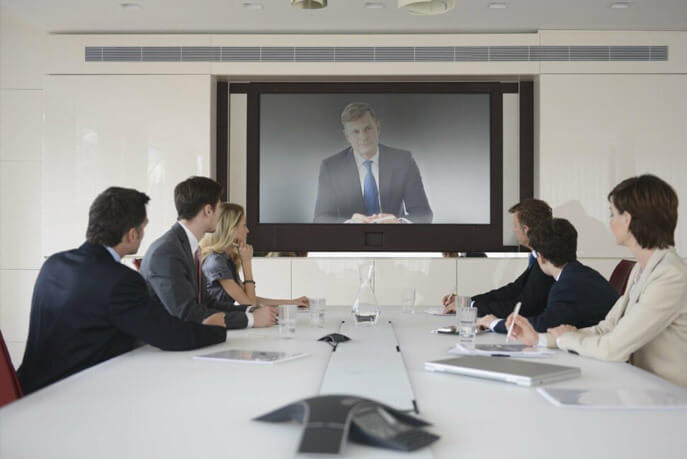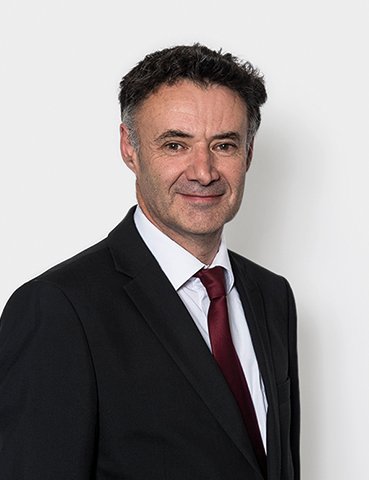The servant of two masters: How can an expert witness square the circle of serving both his client and the court?
29th November 2018
Introduction
Goldini’s classic 18th century tale entitled ‘The Servant of two Masters‘ tells the story of Truffaldino, a servant in 18th century Venice. Many of Truffaldino’s problems stemmed from his idea that he would seek the employ of two masters at the same time. He had reasoned that, if he had two masters, he could make twice as much money – so long as neither ever found out about the other!
Unlike Truffaldino, an expert witness appointed to give testimony in a dispute does not set out to deceive, but may nonetheless find himself attempting to serve the apparently conflicting requirements of his client and the court. Typically, he will be retained by one of the disputing parties, which pays his fees; whereas his duty is to the court, which does not. The danger is that in attempting to please both, he pleases neither, and fails in his obligations.
This paper addresses this dilemma – if indeed it is such – and considers how experts should conduct their duties so as to avoid getting into difficulties.
The Role and Duties of the Expert Witness
An expert, if asked to investigate and opine upon a matter of dispute, will frequently find himself or herself in a position where they are preparing an expert report for a court or tribunal. When an independent expert presents evidence in such a forum, he or she has an overriding duty to that forum. However, the expert may well be engaged on behalf of one of the disputing parties, which no doubt will be hoping to receive a report which assists its case!
The courts require the expert to provide it with knowledge and opinion that will help it address the complex issues of the case (including technical matters which it might not ordinarily understand), and thereby to reach a reasoned judgement. It needs the expert to be accurate and truthful, and to express his opinion without deference to the appointing party. Importantly, it does not wish the expert to act as an advocate.
The appointing party needs him to advise it on the key issues pertinent to its case. It will be seeking accurate and reasoned opinion which may be used by its advocates to build its case, and will be hoping that the expert’s findings and expressed opinions will be favourable to its position.
So we immediately have a potential conflict of interests. If the expert is appointed and remunerated by one of the parties, surely this puts pressure on him to favour that party in his deliberations? After all, pleasing a client is fundamental to good business. Yet the court wants independent and impartial advice. So how can the expert square this circle?
Rules and Protocols
There are a number of rules and protocols which help steer the expert through his work:
Civil Procedural Rules
The Civil Procedural Rules (CPR) apply to all civil litigation in England and Wales. In particular, Part 35 provides guidance for the conduct of experts. Clause 35.3 makes clear that the expert’s overriding duty is to the court. It states that:
“It is the duty of experts to help the court on matters within their expertise.”, and:
“This duty overrides any obligation to the person from whom experts have received instructions or by whom they are paid.”
So the CPR makes clear where the expert’s loyalties must lie. The opinions expressed by experts must be independent and uninfluenced by the pressures of the litigation process. The expert should not seek to promote the arguments of his instructing party. It is often said that a test of independence is whether the expert would have reached the same conclusions had he received the same instructions from the opposing party.
The Ikarian Reefer Judgement
Sometimes referred to as the ‘Cresswell principles of Evidence’, a set of guidelines were issued following a shipping case, known as The Ikarian Reefer. This case involved a Panamanian vessel that ran aground and caught fire. The insurers alleged arson, and in this respect, they relied on expert evidence. Mr Justice Cresswell had significant difficulties with the testimony of some of the experts, and their understanding of their duties and responsibilities. The guidelines which he produced following the case have subsequently been widely accepted as standard good practice for instructed experts.
Mr Justice Cresswell’s seven principles are summarised as follows:
- Expert evidence presented to the Court should be, and should be seen to be, the independent product of the expert uninfluenced as to form or content by the exigencies of litigation;
- An expert witness should provide independent assistance to the Court by way of objective unbiased opinion in relation to matters within his expertise (see Polivitte Ltd -v- Commercial Union Assurance); An expert witness in the High Court should never assume the role of an advocate;
- An expert witness should state the facts or assumption upon which his opinion is based. He should not omit to consider material facts which could detract from his concluded opinion;
- An expert witness should make it clear when a particular question or issue falls outside his expertise;
- If an expert’s opinion is not properly researched because he considers that insufficient data is available, then this must be stated with an indication that the opinion is no more than a provisional one. In cases where an expert witness who has prepared a report could not assert that the report contained the truth, the whole truth and nothing but the truth without some qualification, that qualification should be stated in the report;
- If, after exchange of reports, an expert witness changes his view on a material matter having read the other side’s expert’s report or for any other reason, such change of view should be communicated (through legal representatives) to the other side without delay and when appropriate to the Court;
- Where expert evidence refers to photographs, plans, calculations, analyses, measurements, survey reports or other similar documents, these must be provided to the opposite party at the same time as the exchange of reports.[1]Factsheet 4: The ‘Cresswell’ Principles of Expert Evidence (JS Publications, 2009)
These rules have been quoted on a number of occasions since and stand as a basic code of good practice for experts today.
In the case of Polivitte Ltd v Commercial Union Assurance (mentioned under the 2nd principle above), Mr Justice Garland said:
“I have almost considered the role of an expert to be two-fold: first, to advance the case of the party calling him, so far as it can properly be advanced on the basis of information available to the expert in the professional exercise of his skill and experience; and secondly, to assist the court, which does not possess the relevant skill and experience, in determining where the truth lies.”
Mr Justice Garland’s comments are of interest because they recognise that, although the expert’s principal duty is to the court, it is not necessarily his or her only role in the matter. The appointed expert will not only have provided evidence to the court, but will have advised the party that appointed him. Indeed, that party’s decision to proceed may well have hinged on the opinions expressed by the expert.
With this recognition the expert need not be coy about his dual roles. Clearly he is not an advocate, but he is to use his skill, knowledge and expertise to provide interpretation. In the interests of all involved, fundamentally, the advice that he will give the court should be no different to that which he would provide to his client.

Impartiality and Confidence
Apart from technical competence, the two most important aspects for an expert are to demonstrate his impartiality, and to give the judge confidence in his evidence.
Demonstrating impartiality is key. Advocacy is an easy trap for the expert to fall into. As is a lack of willingness to change an opinion. An instructed expert may be fully familiar with his client’s case, and have developed his opinions well before receiving the counter-arguments of the other party. The expert may then consider that subsequent concession displays weakness, or possibly even a lack of competence. However, an expert’s willingness to recognise the strengths of the other party’s expert’s argument, and to incorporate it into his overall assessment, both assists the court in reaching a decision and strengthens his own standing. Courts do not like to see an expert failing to modify an opinion in the light of overwhelming evidence.
Apart from rules and principles, there are good reasons why an expert should strive to demonstrate his independence and maintain impartiality:
- A report that demonstrates neutrality will hold greater sway with the court. In turn, this increases the value and likely influence of the expert’s evidence;
- It will give the expert greater confidence under cross-examination. A balanced and well-reasoned report is much easier to defend than one which appears partisan;
- If there are weaknesses in the client’s case, it is better that he is advised of these at the earliest opportunity;
- The evidence of an expert who has the appearance of a ‘hired gun’ is compromised, and will be of little value to the court – and hence of little help to your client’s interests.
Judges and arbitrators are consistent in their comments about what they expect from an expert witness. Top of the list is the demonstration of independence. He should discuss both sides’ cases with equal vigour. He should not just dismiss the opinions of the other side on the basis of “in my experience” but state clearly the flaws in the opposing argument, or opine as to why such positions cannot be sustained. Whatever the view of the expert, judges want to see logic and learning behind the opinions expressed.
Cross-examination provides the opportunity for the expert to reinforce the message of independence by demonstrating his balanced and reasoned approach through the answering of questions. However, if any expert is not acting fully in accordance with such principles, it will quickly become evident and experienced judges and arbitrators will not fail to spot it! Nothing looks worse than an expert repeatedly being asked the same question by opposing counsel because he has failed to answer it. The judge must know that the expert is being open and honest. This will give him confidence in the expert’s testimony, and vastly increase the chances that he will rely upon it in reaching his judgement.
Which, after all, is exactly what his client wanted in the first place!
Conclusions
Overall, the expert witness is not serving two masters, he is serving one, the court. And to the extent that he has a duty to the party that appointed him, that duty is best served in exactly the same way that he would best serve the court – the same report, the same conclusions and the same expressed opinion.
For poor Truffaldino it all turned out well in the end. His delicate deception worked for a while, but collapsed when letters addressed to one master were accidentally handed to the other. With his misdemeanours now exposed, he confessed his deception, both his masters forgave him, and they all lived happily ever afterwards!
But the expert witness may not be so lucky, for to receive instructions he relies on his good reputation, and reputations are created and preserved by delivering quality products to the ultimate users of his services – the courts.

The courts require the expert to provide it with knowledge and opinion that will help it address the complex issues of the case, and thereby to reach a reasoned judgement. It needs the expert to be accurate and truthful, and to express his opinion without deference to the appointing party. Importantly, it does not wish the expert to act as an advocate.
Peter Caillard, Executive Director
References
| ↑1 | Factsheet 4: The ‘Cresswell’ Principles of Expert Evidence (JS Publications, 2009 |
|---|
This publication presents the views, thoughts or opinions of the author and not necessarily those of HKA. Whilst we take every care to ensure the accuracy of this information at the time of publication, the content is not intended to deal with all aspects of the subject referred to, should not be relied upon and does not constitute advice of any kind. This publication is protected by copyright © 2024 HKA Global Ltd.


